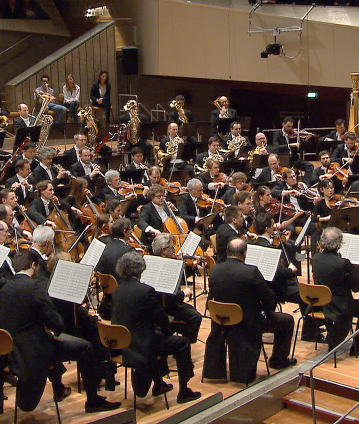Herbert Blomstedt conducts Bruckner’s Eighth Symphony

“More than any other composer, Bruckner was able to depict the endlessness of time and space in music,” says Herbert Blomstedt, the great Bruckner conductor, who also succeeds in filling the monumental escalations and arcs of this music with unrelenting energy. This quality is particularly impressively evident in Bruckner’s most monumental symphony, the Eighth, which is played in this concert.
Herbert Blomstedt’s Bruckner interpretations are exceptionally transparent and rich in detail. In addition, the Swedish maestro’s reading is very direct when, after a finely controlled build-up, he leads the music to its climaxes with deliberate force. “Bruckner’s crescendi,” Blomstedt continues, “are famous. The long escalations sometimes go for several minutes. Right from the outset you need to know where the goal is. The tension can never let up when covering this distance, nor can you increase emotion, volume and intensity too early. When structuring Bruckner’s music, it’s necessary always to keep something in reserve. To do that you need patience, not a very prevalent quality in our day …”
No doubt about it: Particularly in Bruckner the strength lies in economically building up arcs of suspense and in a targeted use of available resources; when the accumulated energy then breaks loose with all its might, his music has an almost overwhelming effect. With his Eighth, which begins with the dusky sound of soft horn calls and string tremolos, Blomstedt programmed the most monumental Bruckner symphony – a work that juts out of the music landscape of the 19th century like an erratic block: “The symphony is the creation of a giant, and in spiritual dimension, prolificacy and volume, it towers above all other symphonies written by the master.” (Hugo Wolf)
© 2015 Berlin Phil Media GmbH
Related interviews